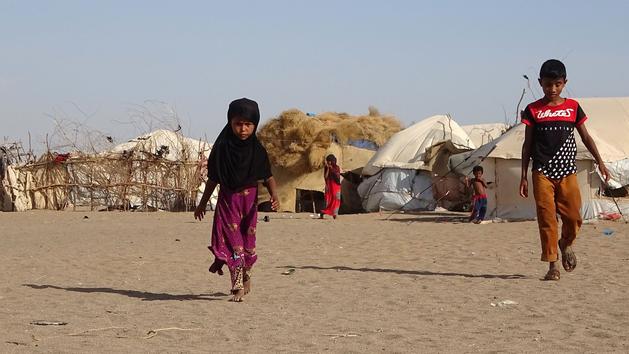Alison Bottomley is advocacy manager for Handicap international. She has been in Sanaa, Yemen for several months. The NGO published a report on Friday on the long-term impact of explosive weapons in populated areas. Yemen has been in the grip of war for almost six years. To the humanitarian crisis was added the health crisis of the coronavirus. 19.7 million people lack sufficient access to healthcare.
LE FIGARO.- Handicap international publishes a report on the impact of the bombings in Yemen. What do you learn from it?
Alison BOTTOMLEY.- Yemen is undergoing a forgotten crisis. When the bombing takes place, people die. But we do not talk enough about the consequences on the infrastructure of explosive weapons with a large impact radius. People have to suffer for years or even decades. It is difficult to rebuild these destroyed buildings and the problems are piling up. The damage continues to kill. This is called the reverb effect. It is a scheduled death sentence. Our report identifies clear examples without being exhaustive. But we do know that 90% of the victims of these long-range explosive weapons are civilians. Handicap International is campaigning to have them banned.
Do you have examples of these “reverb effects”?
Yemen depends on 90% of its imports for food, medicine or fuel. At the start of the conflict, the port of Hodeidah was bombed and two cranes were destroyed. The cost of imports increased and the price of food increased by almost 30%. This destruction had long-term effects. We can also talk about the roads, on which the country depends. When it takes 16 hours to reach a health center, because the infrastructure is damaged, it makes a difference. In the port of Hodeidah, the cranes have been replaced but we cannot speak of a return to normal. Rebuilding a country in wartime is extremely hard. I would add that knowing whether these infrastructures have been deliberately targeted is secondary. The consequences are the same.
Have ceasefire calls made a difference?
The cease-fires had no real impact. The conflict has not stopped in recent months. The country now has 4 million displaced people. These are particularly vulnerable to the risks of Covid-19.
Where is Yemen in the face of coronavirus?
The country is facing a crisis within the crisis. The epidemic is spreading and Yemen is at the level where Europe was a few months ago. But his health system is close to collapsing. Half of the medical facilities are no longer functioning. There are few capacities and many needs. There is a lack of equipment such as gloves or masks. People are afraid to move. Caregivers, who are no longer paid, have sometimes abandoned their positions. The destruction of health infrastructure has favored the return of water-related diseases. The country is facing an epidemic of cholera, but also malaria and dengue. These diseases have similar symptoms. People don't know what they're dying from.
Is the activity of your NGO on site threatened?
The question is that of the duty and the choice of our teams. We cannot ask them to work in a dangerous environment. But they are ready for it. I admire my colleagues. Despite the stress, the resilience is remarkable. This country is incredible but no country should have to suffer as much.

